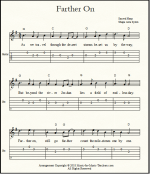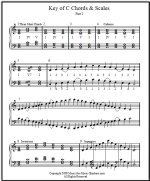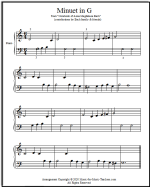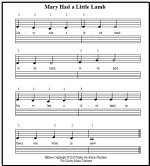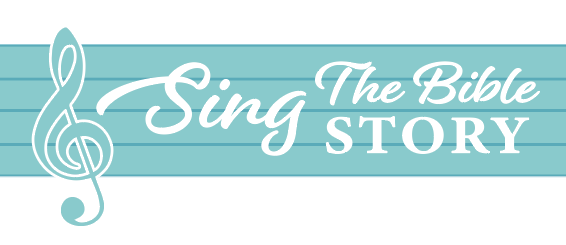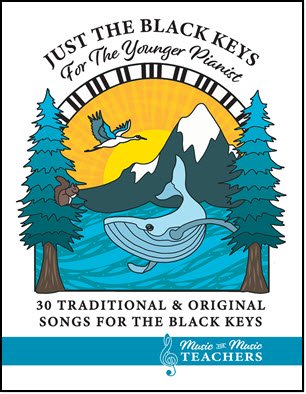Children and Music:
Music Practice Strategies for Your Child
Children and music: How much practice time is enough? What is reasonable? Read about this teacher's experiences to help develop effective music practice strategies for your child!
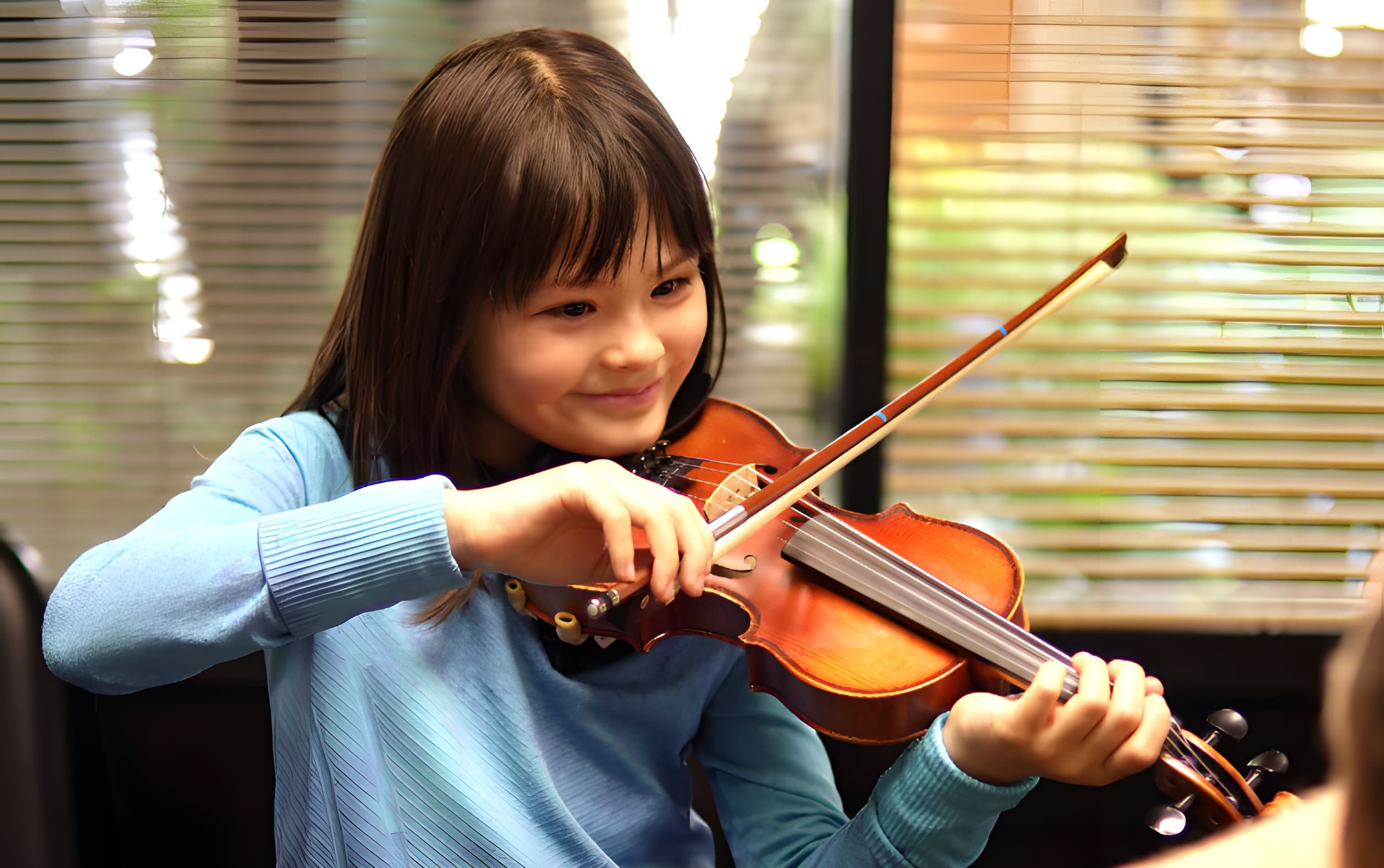
This is a guest post by Katherine Dvoskin, private music teacher and co-founder of K&M Music School in San Diego, California. If you are looking for music lessons in the San Diego area, or want more great private music teacher guidance, check out their website or follow them on social media.
As a music teacher, one of the most common questions I get asked is, "How long and how often should my child be practicing their instrument?" In this article, I'll go over what I recommend for optimal home practice for each level. I'll explain:
- how long each session should be,
- how often they should practice, and
- why I think that routine works best based on the skills they're developing.
My goal is that after reading this, you'll feel more confident knowing what a reasonable practice plan looks like as your young musician goes through different stages. Let's dive in!
Attention Spans Vary by Age and Skill
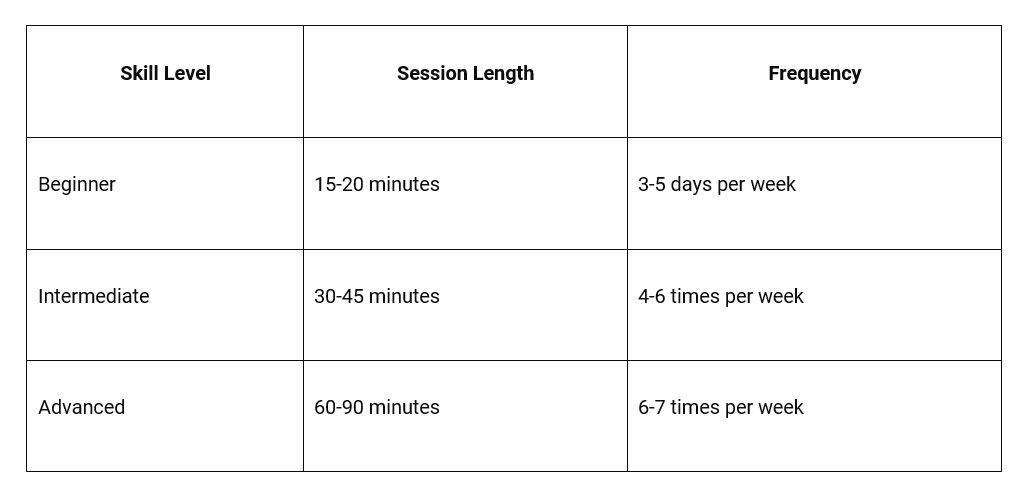
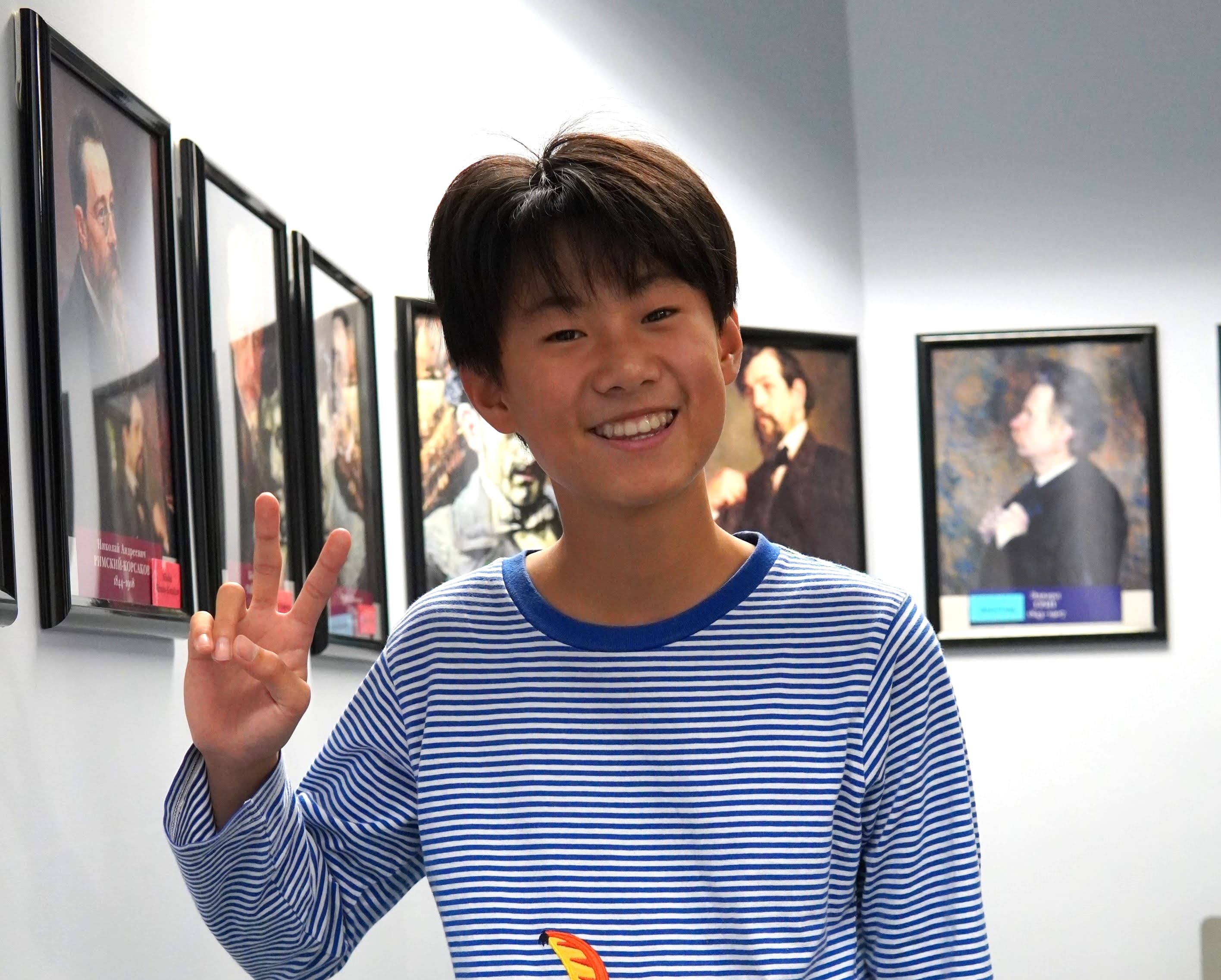
When it comes to learning a musical instrument, how long kids can pay attention varies a lot. Younger beginners or kids just starting tend to check out after 15 minutes or so.
As students get better and progress to the intermediate level, their patience and focus increase a bit. Most can usually stick it out for 30-45 minutes before they need a break.
Then you have your advanced students who have been playing for years. Those experienced students can often bang out hour-long sessions with no problem. Their passion for practice - and the music itself - keeps them hyper-focused.
No child is the same
Of course, there are always exceptions. How long a session should depend on the individual kid - their age, interest level, ability to focus, etc. But in general, the longer someone has been playing, the longer they can sit down and practice without losing their minds!
Recommendations for Beginner Music Students
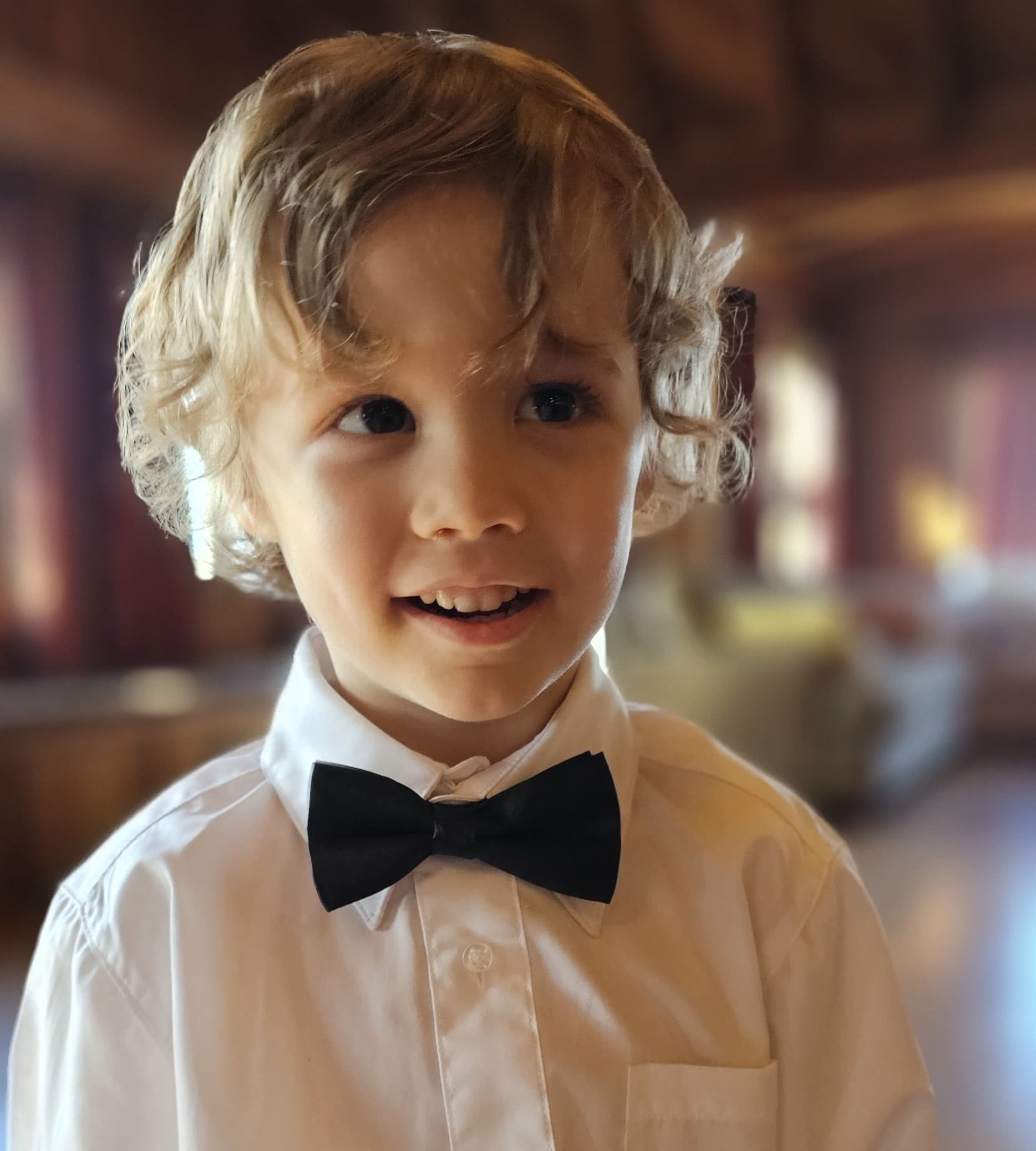
I had a new student, Daniel, who was pumped to start playing piano. He wanted hour-long practices daily. I dig that kind of excitement, but had to suggest starting with shorter, more regular sessions instead. That works better for beginners.
For beginners still learning the basics, I recommend keeping practice sessions short and sweet:
● Session Length: 15-20 minutes
● Frequency: At least 3-5 days per week
The key is LITTLE, and OFTEN. Short, frequent sessions allow beginners to retain focus while slowly building new skills. Daily practice is ideal but aim for at least 3 days a week minimum.
Sample Beginner Practice Schedule

Recommendations for Intermediate Music Students
I'll never forget when one of my favorite students, Natalia, looked me straight in the eye and said "My dog ate my music." I cracked up! But it showed me Natalia needed more structure for practicing. Together we made a plan: 45-minute practice sessions, 5 days a week.
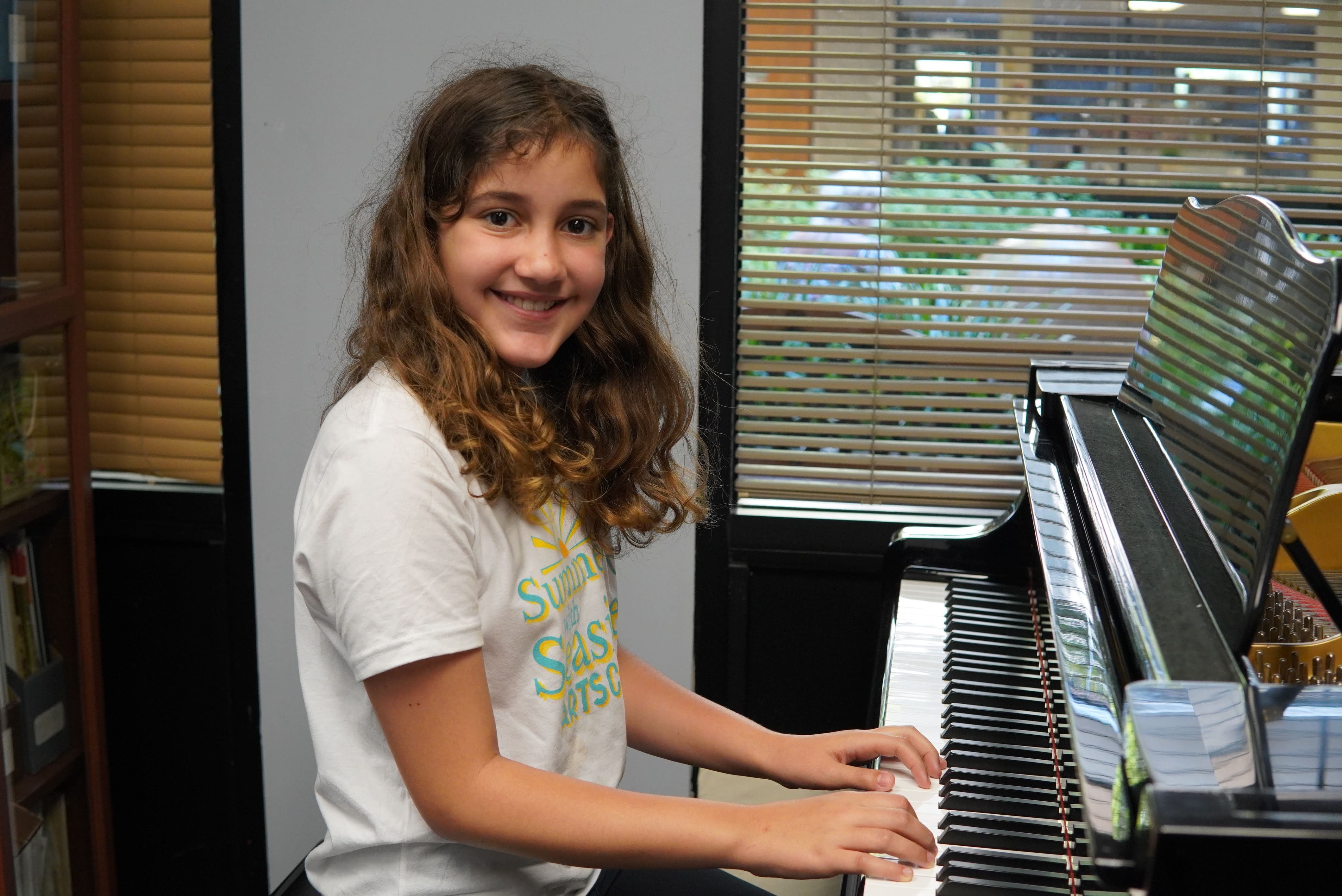
As students progress into the intermediate phase, their concentration and motor skills improve. This allows them to start extending session length while practicing a little less frequently.
● Session Length: 30-45 minutes
● Frequency: 4-6 times per week
Sample Intermediate Practice Schedule

Recommendations for Advanced Music Students
Leslie, my dedicated piano student, was preparing for an important exam. Her piece was Beethoven's Sonata Op. 49 No. 1.
We decided to try an experiment - drastically increase her practice time for a week to accelerate her improvement. Leslie began at 2 hours daily, then steadily ramped up her intense practicing. By week's end, she put in a grueling 6 hours every day!
This immersive week was astonishingly fruitful - Leslie's musical and technical skills progressed as much as they might have in a whole month. The focused effort paid off, as Leslie passed her exam with ease. Her grit in undertaking this demanding practice schedule demonstrated that with strong motivation, substantial short-term gains are achievable.
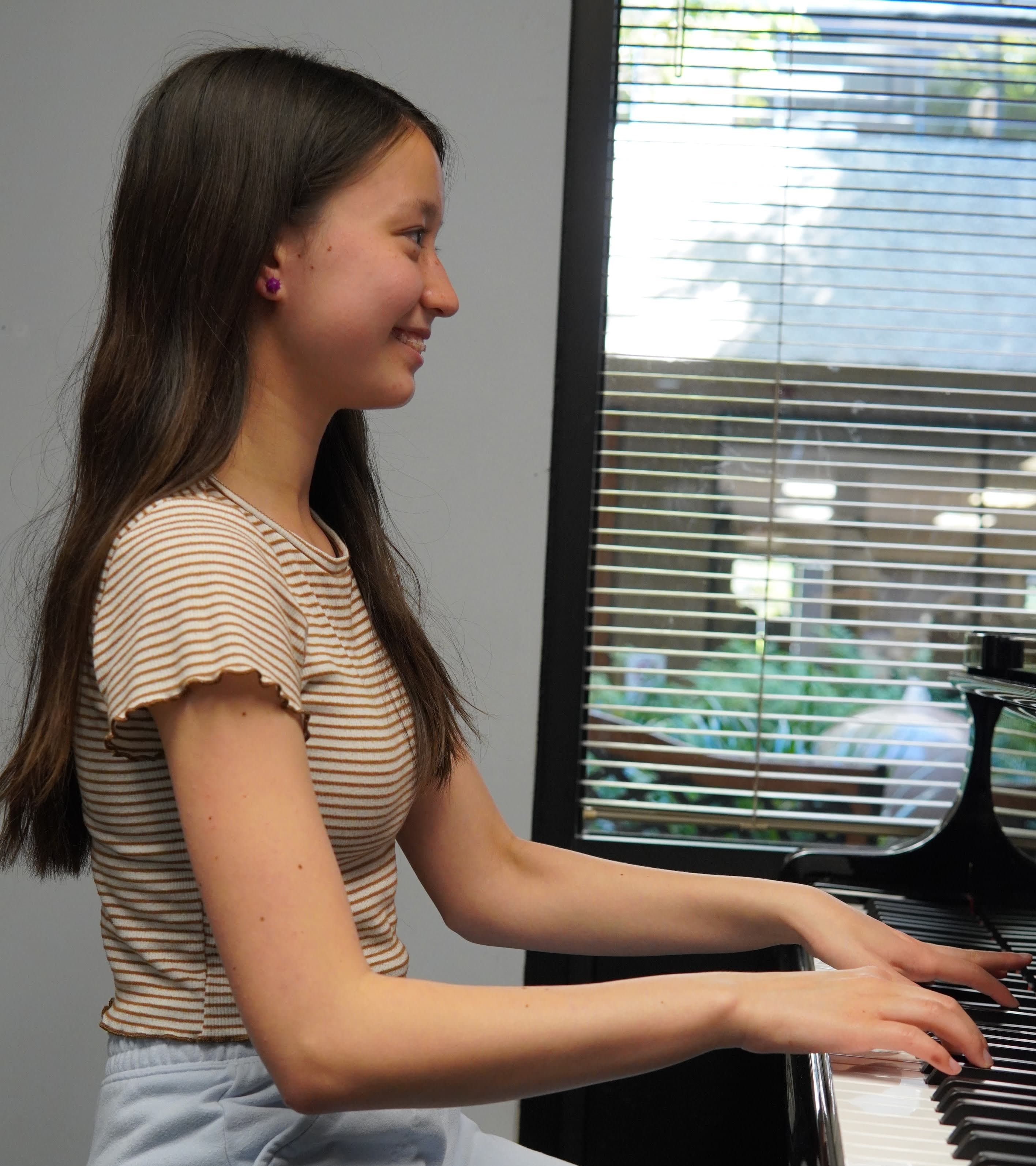
In the advanced stages, students have developed strong technical skills and concentration abilities. This means they can dedicate longer periods to intense, focused practice.
● Session Length: 60-90 minutes
● Frequency: 6-7 times per week
Sample Advanced Practice Schedule

For teenagers preparing for music exams or auditions, an hour of intense practice may be required daily. Break this up into two 30-minute sessions if the focus drifts.
Additional Considerations
When developing an optimal home practice routine, also consider:
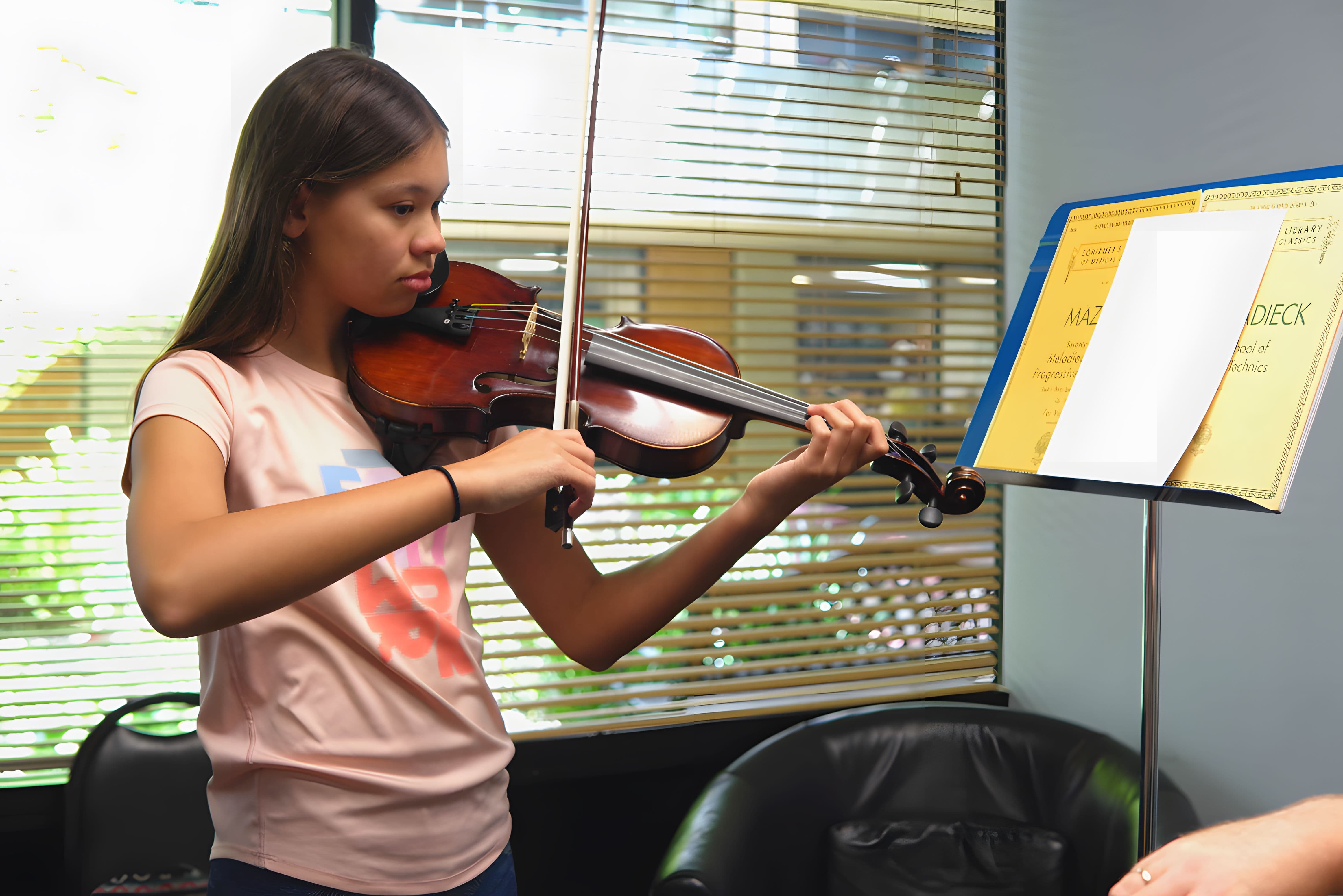
● Mental Fatigue: Look for signs of frustration, boredom, or distraction as cues to end the session.
● Physical Fatigue: Repetitive movements can cause muscle strain or injury. Add stretches and take breaks.
● Supplement with Ensemble Playing: Playing solo is important but ensemble work teaches vital skills too. Try to incorporate both.
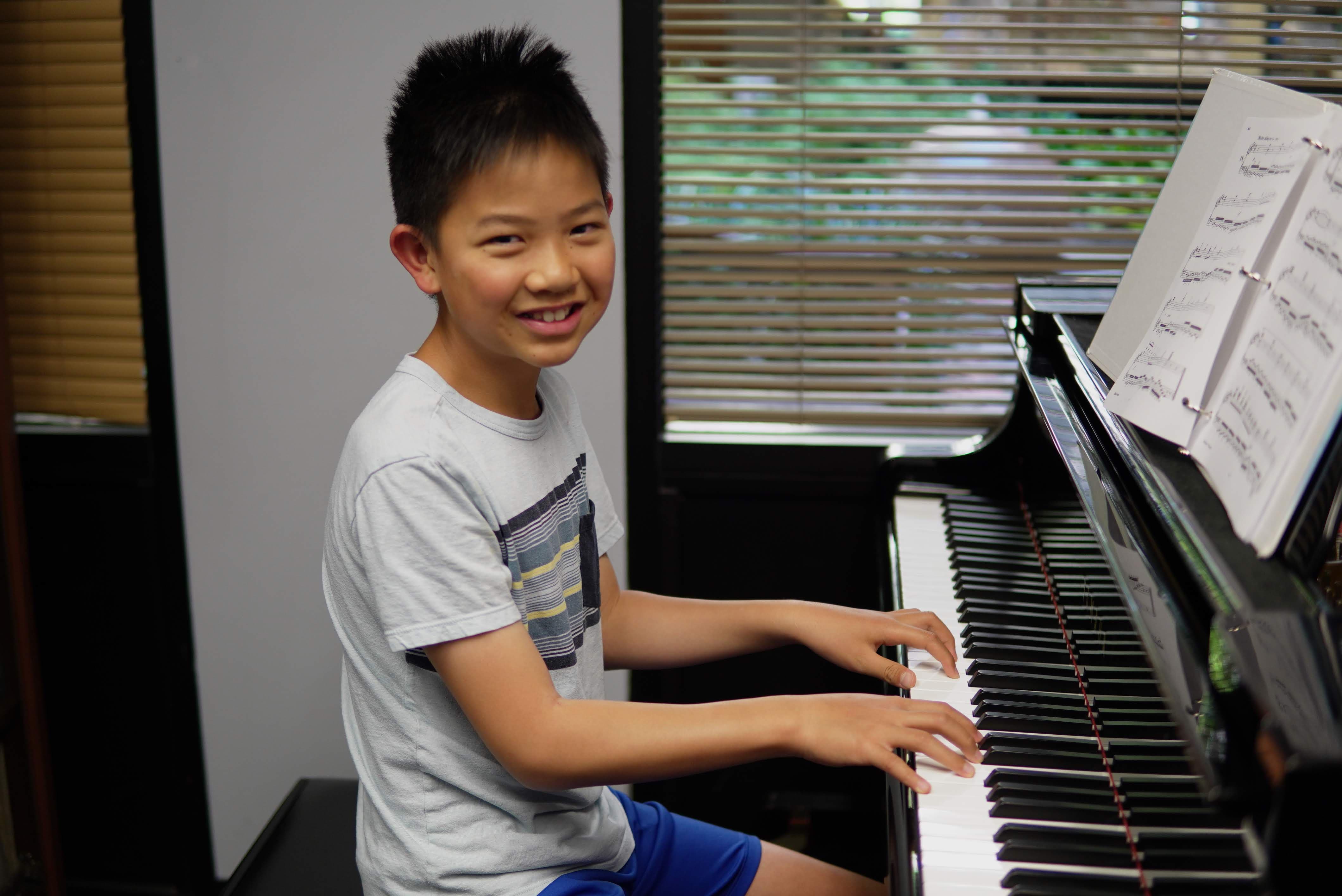
In conclusion:
At the end of the day, the key to success is finding a practice schedule that works for you. Some students thrive on shorter, more frequent sessions, while others prefer longer, more intensive ones.
The important thing is to be consistent, stay focused, and remember that progress takes time.
Dianna:
Your website is a light in the darkness. THANK YOU for all you do in helping to spread the love of music. It matters!
Recent Articles
-
Moonlight Sonata in Cm
Hello! Thank you for sharing the introduction to Beethoven's Moonlight Sonata in C minor! It will be a good trial for a certain student. Can you make -
Farther On, a Beautiful Shape-Note Hymn: vocal ensemble & instruments
Farther On is a beautiful Shape-Note hymn in the Sacred Harp tradition. Download this free hymn sheet music for ensemble, guitar, piano, & lead sheet. -
12 Major Scales Free Download for Piano: Chords, Arpeggios & Scales
12 major scales & chords: free, printable downloads. One & two-octave scales, I, IV & V chords & inversions & arpeggios, & a new PART 2! -
Bach Minuet in G Piano Music: Arrangements for All Levels
The Bach Minuet in G is a famous piece that kids enjoy playing - now with six arrangements, all of your students can conquer this piece. -
Mary Had a Little Lamb for Beginner Piano: Learn How to Add Chords
There is so much you can do with Mary Had a Little Lamb! As piano music for kids, it is unbeatable for showing them how to use chords.
Interested in songs from the Bible for your students or church? Check out my other website, SingTheBibleStory.com!
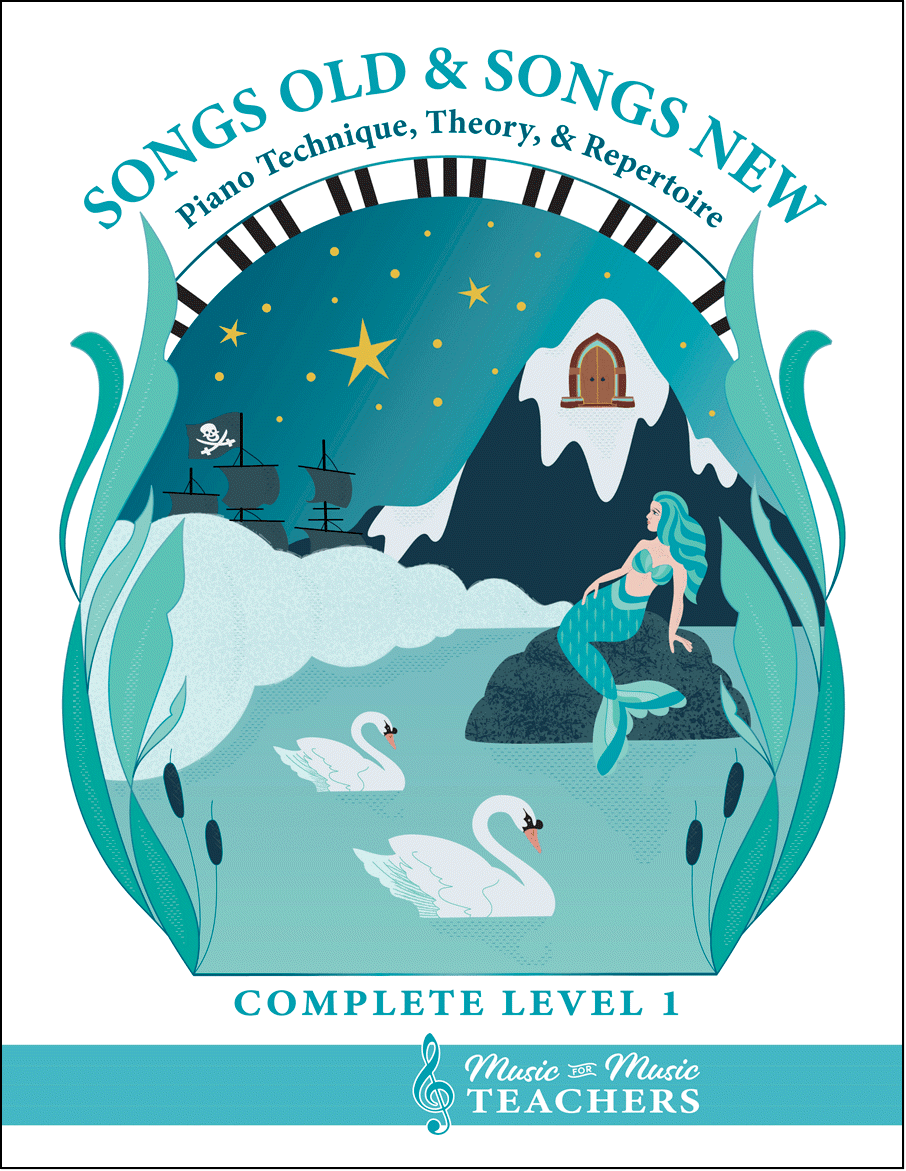
All the first-year material I give my beginner students.
Piano keyboard sheets, scales, chords, note-reading exercises, and over 256 pages of music!
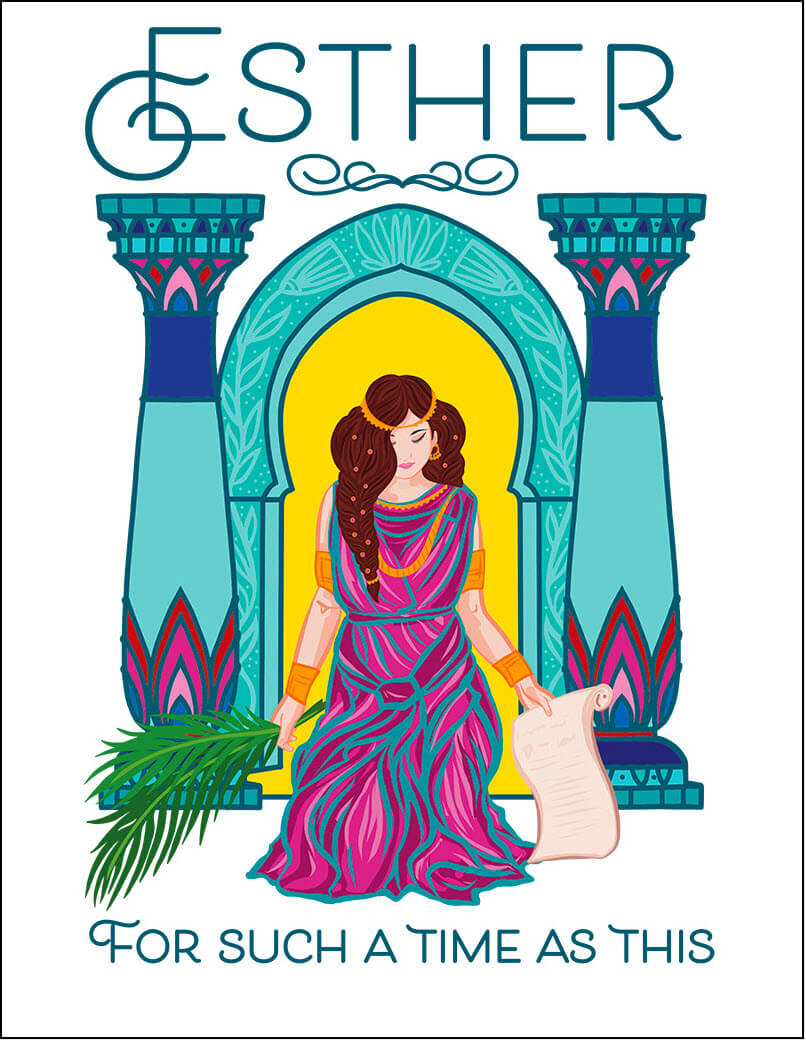
This beautiful song book for piano & voice "Esther, For Such a Time as This", available as a digital download, tells the riveting story of the time when Jews in ancient Persia faced a foe named Haman, and how a brave young queen risked her life to save her people.
A good choice for a singing story-teller, an operatic group, a short theater production, or a class of children!
This book is also available from Amazon as a paperback.
This book is available as a digital download from this site. Visit this page to see some free examples from the book.
It is also available from Amazon as a paperback!
This is the perfect easy start for little pianists.
And when they start reading white-key notes on the staff, this is a fun easy resource to say each week, "Choose a new black-key song at home this week and figure it out to show me next lesson!" They will be spending more time at the piano.
A perfect read aloud storybook
for little boys or girls.
The Adventures of Tonsta highlight the travels of a very young boy with a good heart, who goes about helping folk in trouble.
With a red cap on his head and a sack of tools slung over his shoulder, Tonsta seems to meet people in distress wherever he goes.
Lots of trolls in this book - including one who gives him a Christmas gift!
About the Author

Hi, I'm Dana! (Say that like "Anna".) I'm the owner of Music-for-Music-Teachers.com, and a newer site, SingTheBibleStory.com.
Like some of you, I've been playing the piano since early childhood, and have added a few other instruments along the way, plus an interest in arranging and composing music.
You can find out more about me and the reason for this website at my About Me page.
